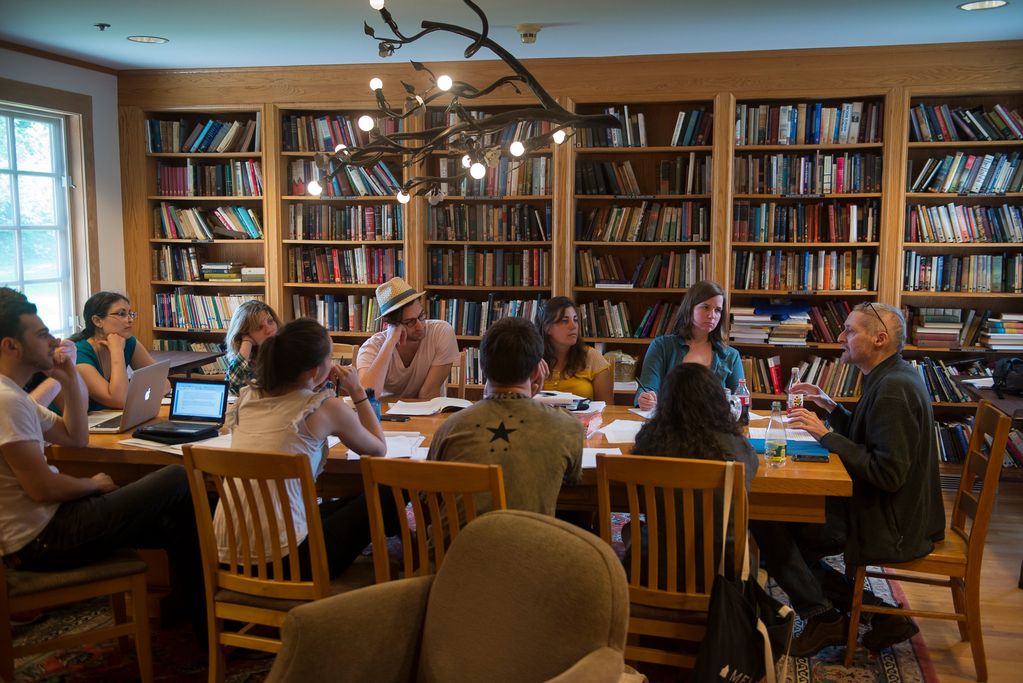
Conversation-starting platform
Providing museum leaders an opportunity to recommend and share the very best of what their institution does and hopes to do. Together we promote new content; foster inspirational and rigorous projects; and provide opportunities to collaborate, elevate awareness, and demonstrate impact to pathbreaking funders.
jMUSE invited five high-performing institutions to spotlight how they leverage their expertise.
HOLOCAUST MUSEUM LA
Inspiring humanity through truth; teaching critical lessons of the Holocaust; and empowering students and the public to stand against antisemitism, bigotry, and hatred.
Holocaust Museum LA is the oldest survivor-founded museum in the United States and the only LA museum dedicated to Holocaust education and commemoration that is open daily, free of charge. Through customized tours, artifact-rich exhibitions, creative educational programs, and intergenerational conversations with survivors, the Museum teaches students and visitors—particularly from underserved communities—about the social relevance of the Holocaust. It provides meaningful and poignant educational programs and resources, both onsite and online, to keep students, docents, survivors, and the public informed, engaged, and connected.

MUSEUM AT ELDRIDGE STREET
Welcoming diverse audiences to the magnificent National Historic Landmark Eldridge Street Synagogue, and engaging visitors in reflection and conversation.
The Museum at Eldridge Street fosters meaningful educational and cultural experiences in a place of resilience, beauty, and history. Tours, programs, and exhibits illuminate the history of the Lower East Side, then and now, encouraging visitors to explore American-Jewish culture and traditions; discover the realities of immigration to New York City; and learn how a heroic 20-year preservation effort saved this landmark for future generations. A monumental stained glass window from 2010 symbolizes the building's continuing life. Tens of thousands of visitors each year participate in the Museum's lectures, classes, concerts, festivals and neighborhood walking tours, while many more access online offerings.

HOLOCAUST MUSEUM HOUSTON
Building a more humane society by promoting responsible individual behavior, cultivating civility and pursuing social justice.
Holocaust Museum Houston is dedicated to educating people about the Holocaust, remembering the 6 million Jews and other innocent victims and honoring the survivors’ legacy. Using the lessons of the Holocaust and other genocides, we teach the dangers of hatred, prejudice and apathy. Ranked as the nation's fourth largest Holocaust museum and fully bilingual in English and Spanish, the Museum’s galleries focus on the Holocaust, human rights and social justice.

YIDDISH BOOK CENTER
Recovering, celebrating, and regenerating Yiddish and modern Jewish culture.
The Yiddish Book Center was founded in 1980 when Aaron Lansky realized that untold numbers of Yiddish books—the primary, tangible legacy of a thousand years of Jewish life in Eastern Europe—were being discarded. The million books that were recovered represent Jews’ first sustained literary and cultural encounter with the modern world. Over its four decades, the Center has undertaken a still more formidable challenge: sharing with new generations the books’ language, content, context, and cultural impact—through education, translation, publications, oral history, exhibits, and in-person and online programs. The Center is a National Medal for Museum and Library Service award recipient.

DALLAS HOLOCAUST AND HUMAN RIGHTS MUSEUM
Teaching the history of the Holocaust; advancing human rights to combat prejudice, hatred, and indifference; and impacting attitudes and behaviors through education.
Founded in 1984, the Dallas Holocaust and Human Rights Museum shares the lessons of the Holocaust and other genocides to inspire visitors to stand against hatred and promote human dignity. The Museum is one of only 21 Holocaust and human rights museums in the nation, and the only one serving the four-state region of North Texas, Oklahoma, Arkansas, and Louisiana. In September 2019, the Museum’s new campus opened; visitorship has more than doubled since. Through its four core sections—Orientation; Holocaust/Shoah; Human Rights; and Pivot to America—visitors learn the importance of being an “upstander” and confronting bigotry, injustice, and indifference.

jMUSE amplifies big ideas and shares compelling content to connect funders to great resources.
FEATURED INITIATIVES

Bringing Bilingual Holocaust Education to Schools and Communities
In keeping with is commitment to promoting bilingual Holocaust education and breaking down barriers to access, Holocaust Museum Houston empowers teachers, students, and members of the public to have educational experiences—in English and Spanish—in their own schools and communities. Through the Museum’s Educator in Motion program, a

Making Yiddish Literature Accessible
As the Yiddish Book Center works to recover, celebrate, and regenerate Yiddish, one of its key focuses is to bring Yiddish literature to new audiences. The tens of thousands Yiddish titles that appeared in the late 19th and early 20th centuries represent the single most concentrated outpouring of literary creativity in Jewish history to that point. Yiddish books

“Ten Stages of Genocide”: Identifying the Warning Signs
The Dallas Holocaust and Human Rights Museum’s “Ten Stages of Genocide” exhibition and educational resources not only raise awareness, but also deliver a strong message: It is up to all of us to see the warning signs and to take action. When Classification and Symbolization feed Discrimination and Dehumanization, and we begin to see Organizati

Celebrating Jewish History and Cultural Diversity in New York City
For two decades the Museum at Eldridge Street’s annual Egg Rolls, Egg Creams and Empanadas Festival has invited the public to discover the cultural diversity and powerful history of New York City’s Lower East Side. With partners including the Museum of Chinese in America, the Tenement Museum, and the Greek Synagogue, the Festival ce

Learning from Survivors Now
Holocaust Museum LA was the first Holocaust museum in the United States created by survivors. That special legacy, along with the institution’s strong Holocaust education mission, continues to motivate the Museum to find compelling ways to present eyewitness accounts, amplify survivors’ voices, and give public audiences the opportunity to learn from human experiences. To




